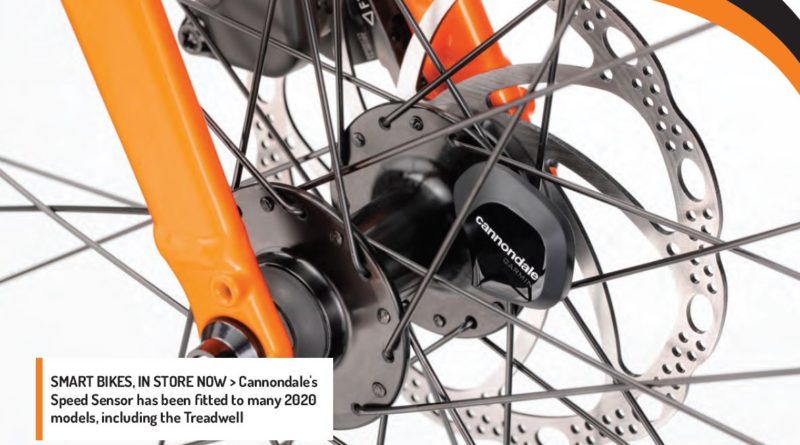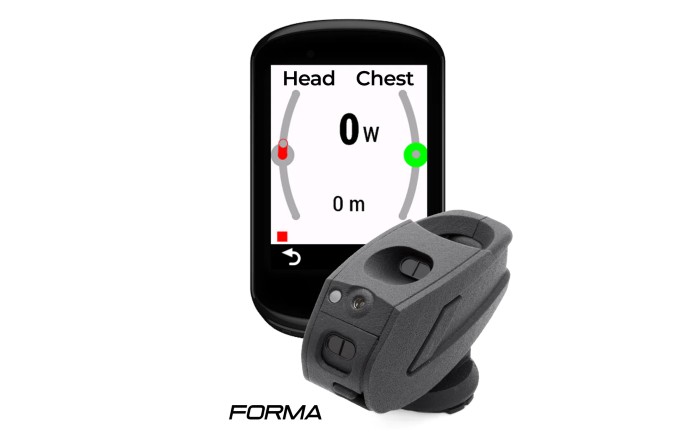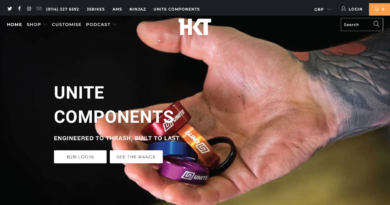2019: The year smart bikes got serious – and made their way into bike shops
With cutting edge tech companies and established bike market players like Dorel getting into connected bicycles, it’s safe to say that smart bikes are no longer just eccentric concept bikes but now in production and in store now…
Once characterised by the Fitbit and its ilk, as well as apps on smartphones, the wearables and fitness data collection market has leapt forward a number of steps in recent years and months – and now smart bike technology is being incorporated into production models and getting into the globe’s cycle retailers.
One of the most significant is Cannondale’s Speed Sensor, revealed earlier this summer. Built into 2020 Cannondale bikes, including the non-enthusiast ‘grab and go’ Treadwell, the Speed Sensor was developed in conjunction with Garmin. Not only does it measure speed, distance and calories (and carbon emissions saved) but the Sensor automatically registers the bike with a spin of the wheel, connecting not just the bike with the smartphone, but also the brand with the consumer.
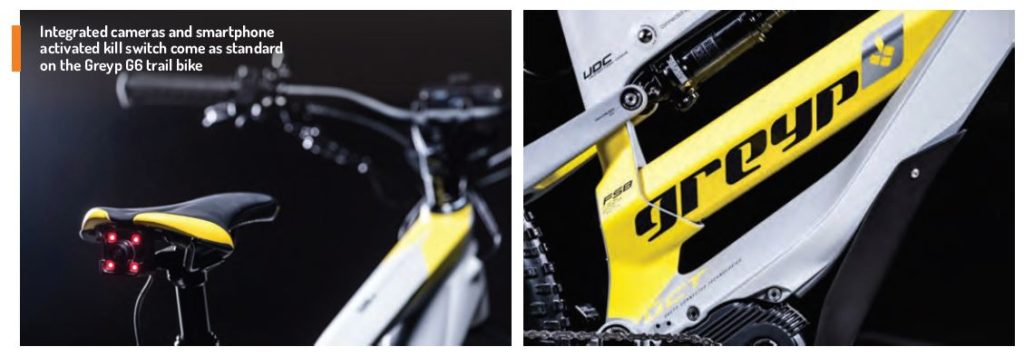 The smart bike sector took another giant leap forward this year with Greyp’s “100% digital” G6 trail bike. Coming with built-in wide angle cameras, a smartphone activated kill switch for security and GPS, Greyp is not a highfalutin concept bike but has been out and about on the trails and in the hands of the press at Eurobike Media Days in South Tyrol in July.
The smart bike sector took another giant leap forward this year with Greyp’s “100% digital” G6 trail bike. Coming with built-in wide angle cameras, a smartphone activated kill switch for security and GPS, Greyp is not a highfalutin concept bike but has been out and about on the trails and in the hands of the press at Eurobike Media Days in South Tyrol in July.
Greyp’s G6 uses an integrated Central Intelligence Module that accepts over-the-air software updates for new features, functionality and performance for the motor and battery pack. In what would previously have sounded like fantasy, Greyp’s G6 even has an option for the rider’s heart rate to determine the level of electrical assist. It’s a far cry from heart rate monitors strapped to your wrist.
At the top end of the year, Halfords announced it would retail the world’s first Amazon Alexa-enabled bike, the Cybic Legend. While you may flippantly wonder why you’d want to make an Amazon order whilst in the saddle (or wonder why Halfords is sportingly connecting its customers to a rival retailer like Amazon), Alexa functionality provides turn-by-turn GPS, personalised light settings, smart security lock and alarm plus an HD music player for purchasers of the Cybic Legend.
Even the advocacy sphere has warmed to the concept of always-on smart sensors. Dublin City Council had partnered with Vodafone and Northern Irish tech company See.Sense. Sensors will be fitted to bikes, gathering data over Vodafone’s NB-IOT network to gather crowdsourced data on road surface conditions, collision and near miss events, as well as route activity.
For the bike retailer, the wider implications of the smart bike advent are as yet unclear. Cycling Industry News went out on a limb and predicted that smart bikes will be making ever greater waves in the cycle industry last year, and 2019 has seen this prediction begin to take shape.
We’ve previously asked retailers for their views on the pros and cons of smart bikes (see ‘Ask the professionals’, CIN issue 004 2018) but it seems safe to assume that smart bikes, or connected bikes, are no longer stuck in concept bike stage but well and truly here – and creeping into bicycles from the globe’s big bike brands. It’s hard to argue that the smart bike has yet peaked.
JERSEYS THAT MEASURE YOUR HEART RATE
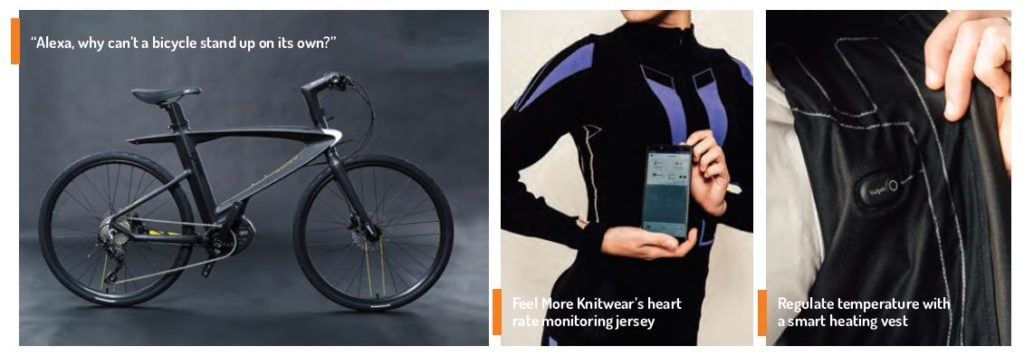 Tech companies are pushing the envelope with smart clothing too. The Worth Partnership Project, an incubator funded by the European Commission for design innovation in clothing – has awarded two promising projects that push the smart clothing frontier.
Tech companies are pushing the envelope with smart clothing too. The Worth Partnership Project, an incubator funded by the European Commission for design innovation in clothing – has awarded two promising projects that push the smart clothing frontier.
The smart heating vest does exactly what you’d expect. The intelligent, lightweight and waterproof jacket allows the wearer to heat their body and adjust the temperature via a phone app. More appropriate to the cycle market is ‘Feel More Knitwear’. Pitched at all types of athletes, this jersey integrates sensors into the fabric that detect biometric data of the wearer. Without a wrist strap, the jersey can measure heart rate, body temperature and other parameters that monitor the body when training.
With the incorporation of electronic tech into bikes and clothing the connected product sector can head into any number of directions (smart cycle luggage, anyone?). 10 years ago, wearing a watch that lets you read your messages would have seemed like science fiction, and the idea that your bike will alert you when it is due a service appeared similarly unlikely, yet here we are. Will it mean that your average bike shop needs a diagnostic machine for the bike it services? Or even a diagnostic machine for the clothing brands it stocks? Time will tell.
